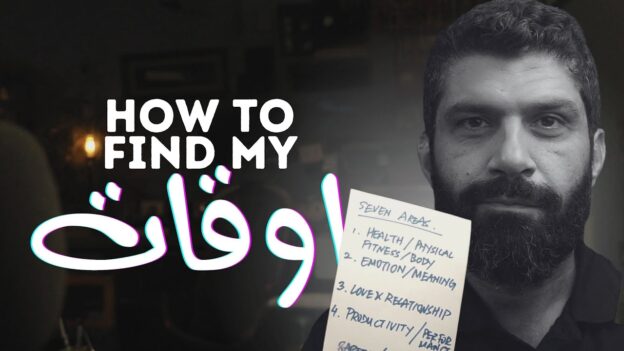This is a “how to” story. It’s a story because I will tell you how I got my first ever article published in a national print magazine!
I have been published in the largest circulating magazine (at the time) in Pakistan, and also in the largest blog/site (at the time) in whole wide universe. These two facts in themselves may not qualify me to give “advice” on how to get published as a writer.

But my qualitative filter for giving advice is as follows: if I’ve done it myself, I can talk about it in a way that may help you. And one never gives advice; one can only take advice.
Advice on writing well is simple:
- Read “On Writing” by Stephen King. Don’t know how much advice you’ll follow from the largest selling author in the history of this planet, but the book itself really looks important on your book shelf.
- Start and keep writing. Forever.
Now getting your writing to see the light of print is simpler still. I’d read article upon article, advice upon advice on how to pitch to a newspaper. That was me escaping from taking action. From experience, I think the following two steps need to be taken to get your first article published:
- Keep pitching your ideas to publications – these may be online (blogs mostly) or offline (newspapers, magazines, you name it).
- See which publication will make you look cool – keep pitching to them. They will probably reject you. See step 1. Tenacity is a writer’s best and sometimes only friend.
Speaking of friends, it helps – and in many cases is the deciding variable – to know the editor or someone from the publication to put in a good word for you. A good word for your words.
One of my gigs was a direct result of my personal connection putting in a good word. That good connection happened to be Jeff Koyen, a writer and an entrepreneur I met when he was in Lahore, a million years ago at least. Apart from interviewing me for Wired and leaving a fantastic testimonial on my LinkedIn profile, he also recommended me as a writer for a large online publication (thanks Jeff!).
So yeah, having friends always helps. But making friends so you can ask for help later is not the way to go about it. Being genuine may not be a natural condition and can – and should – be learnt. But that’s a different “how to” story.
What follows is a true story of how I became a published writer, so many years ago.
Note: although I’m a professional blogger (whatever that means), I still consider a “published author” different from simply “author” with the following qualifier: a “published” author gets paid for his writing. I know, that’s so 90’s. But that’s where we are from last time I checked.
—
In college, around 1999, I took the course misleadingly titled, “Artificial Intelligence”. As with most things in college, this was a course I took because (a) the name sounded way too interesting – maybe I’d be building cyborgs, and (b) it was supposedly taught by an “easy teacher”. I was wrong on both counts.
Towards the end of the semester, the teacher gave us an assignment. The teacher, who by then was not known as an easy teacher, had clearly said that he’d cut marks for late submissions, even if the assignment was perfectly written!
The only thing perfect about my assignment at that time was its incompleteness. But there was a silver lining there.
I had read somewhere that one must take personal initiative and leverage his actions as much as possible.
So to test this theory of leveraging my work, before beginning work on the assignment, I had emailed Spider – a national print magazine here in Pakistan. I asked them if they wanted an article on Artificial Intelligence titled, “What is AI?”. I didn’t know that publications were particular about word count. Heck, at the time I didn’t even know that they’d pay me to write for them. I read online about how to craft a pitch for an article, and sent the email.
After I had emailed them, the assignment became more meaningful; now I wanted to finish the assignment and not only get a good grade but be a published writer! Such is the way leverage and motivation works.
But like I said, my assignment was late. Half written, most time spent on designing the Word document (I didn’t even know back then that the publications obviously want you to write the damn article, not design the layout as well! Aaah, dumb days!).
So the submission date for the article came – and I had not heard from Spider either. This was not looking good at all. I had to make amends.
“Sir, please don’t cut my marks,” I said, “I will submit my assignment in the next class, and my reason for late submission is genuine!”
“O I see,” he said, “and what reason is that baita?”
I don’t know what happened because later I distinctly remember asking myself, “I am not a liar, why did I say that?”
I said, “The article is going to appear on Spider magazine, sir, and I am editing it as I want it to be fit for print in such an esteemed publication.” I knew he read Spider; I’ve seen the magazine in his air-conditioned, neat, chilly, drab, uninviting office.
He was amused. He smiled. Said in a low voice, “make sure you submit it in the next class then. I will be interested in reading it.” I think he even winked, but it may be my mind filling in the gaps.
After completing the article, I sent it to Spider, and took a print out of the article to submit as the assignment.
Spider wrote back. They told me that they will be running the article as the cover story. The cover story!! On the front freakin’ page! My story! This was incredible. Other students were submitting assignments only; I was getting paid as a writer! Woohoo into infinity!
The teacher was also happy with the article. “I gave you full marks for it,” he told me, handing the checked and marked assignment back in my hand.
I had received 70 percent marks; thirty were cut for late submission.
—
Photo credit: mrsdkrebs



